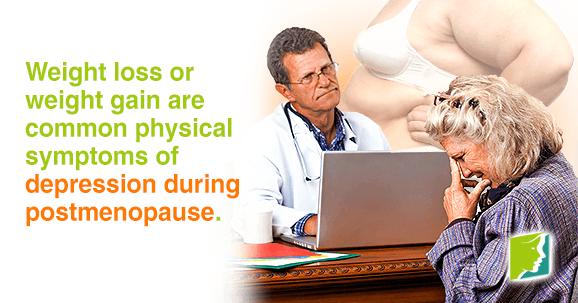Unfortunately, depression during postmenopause is common. Although your last menstrual cycle may have been months or even years ago, you may still be feeling symptoms of the change that your body went through. This can be frustrating and upsetting, and more than ever, you are likely eager to get your life back on track.
This can be hard to do when you're battling the symptoms of depression, so taking time to learn about the condition is a great first step. Explore the common questions and concerns women have in regards to this emotional issue.
Why Am I Experiencing Postmenopausal Depression?
Typically, the main cause of depression during postmenopause is hormonal imbalance. As a result of menopause, sex hormones are lower than they are during a woman's reproductive life. At first, you may not have noticed the effects of menopausal, as depression sometimes does not appear until postmenopause due to the influence of genetics or life events.
Neurotransmitters that are essential for happiness and feelings of support - such as serotonin, endorphins, and oxytocin - can be impacted by low estrogen levels, making you feel upset and lonely. Other causes may be connected to external factors, like signs of aging or children moving out.
What Are the Different Types of Depression?
In general, depression is a period of long-term sadness or lethargy that affects your ability to maintain an optimistic attitude towards yourself and your life. The three most common forms of depression are major depression, dysthymic disorder, and seasonal affective disorder (SAD).
Major Depression
This type of depression typically occurs during difficult transitions in one's life and is characterized by feelings of emptiness and hopelessness. Minor depression is more or less the same, but the symptoms are moderate in comparison.
Dysthymic Disorder
This is a form of depression in which symptoms last two or more years but are milder than those major depression.
Seasonal Affective Disorder
SAD occurs typically during the winter months. It is believed to be a result of diminished levels of vitamin D caused by lack of sun exposure, shorter days, and longer nights.
What Are Common Symptoms?
The most common physical symptoms of depression during postmenopause are weight loss or weight gain, fatigue, insomnia, constipation, aches, and restlessness. Emotional symptoms tend to be lack of interest in favorite activities, feelings of worthlessness, low self-esteem, sobbing, irritability, lack of motivation, indecisiveness, and - in severe cases - thoughts of suicide.
Should I Take Antidepressants?
Antidepressants are commonly prescribed by doctors to patients with any of the aforementioned types of depression. Only you can answer this question with the guidance of your doctor or psychiatrist. There are several types of antidepressants, and some may be better suited for your type of depression and medical profile than others. Your physician can monitor your progress if you take antidepressants to make sure they are a good fit with minimal side effects.
What Are the Alternatives?
There are several herbs that can be effective for minimizing symptoms of depression. For hormonal balance, try black cohosh. Its high phytoestrogen content can restore estrogen levels, helping to balance your brain chemistry. Another herb that is often used in place of antidepressants is St. John's wort, which has been found to relieve sadness and other symptoms. You can compare the pros and cons of antidepressants and herbal remedies with your doctor.
Other factors to strongly take into consideration are a healthy diet and adequate physical activity. Being out of shape and having nutrient deficiencies can trigger depression in those who are prone.
There is no reason why you should have to deal with the heavy emotional burden that comes with depression. When you are aware of your condition, the symptoms, and the available treatments, you can treat depression during postmenopause successfully.
For more information on depression and how to manage it, follow the links below.
Sources
- National Institutes of Health. (2014). Depression. Retrieved June 18, 2014, from http://www.nlm.nih.gov/medlineplus/depression.html
- Stanford School of Medicine. (n.d.). What is Depression? Retrieved June 18, 2014, from http://drc.stanford.edu/depression.html
- University of Maryland Medical Center. (2013). Depression. Retrieved June 18, 2014, from http://umm.edu/health/medical/altmed/condition/depression




